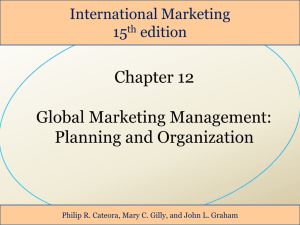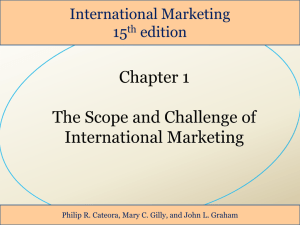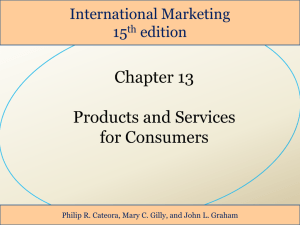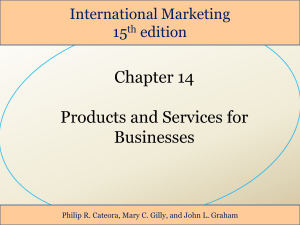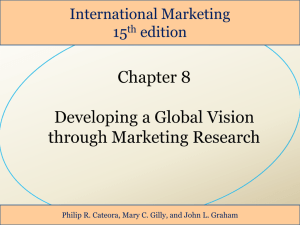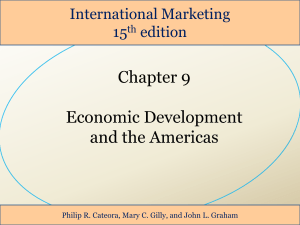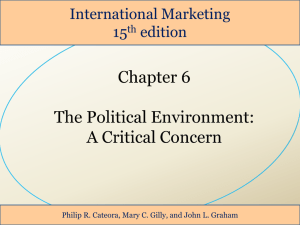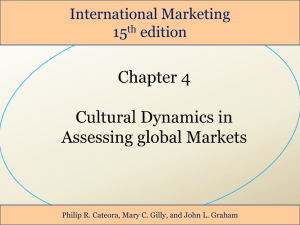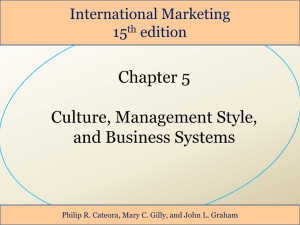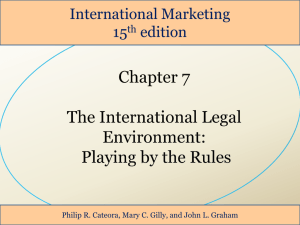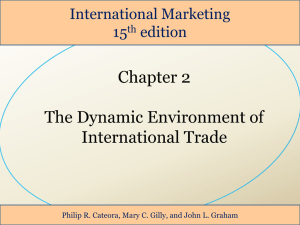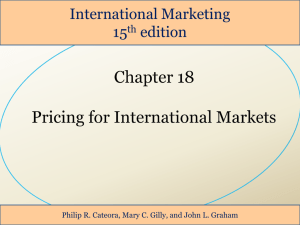Introduction - International Business courses
advertisement
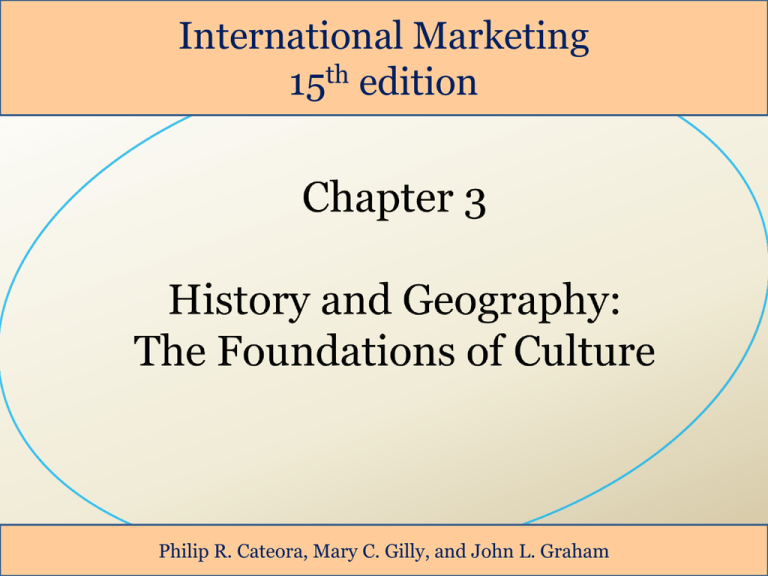
International Marketing 15th edition Philip R. Cateora, Mary C. Gilly, and John L. Graham Introduction 3 • To understand a society’s actions and its points of view, you need to appreciate: – The influence of historical events – The geographical uniqueness to which a culture has had to adapt • Culture can be defined as society's accepted basis for responding to external and internal events • To interpret a culture’s behavior and attitudes, a marketer must have some idea of a country’s history and geography Roy Philip 2 History Perspective in Global Business 3 • History helps define a nation’s mission – How it perceives its neighbors – How it perceives itself – Its place in the world • Insights into history are important for understanding current attitudes • It is necessary to study culture as it is now as well as to understand culture as it was – A country’s history Roy Philip 3 Geography and Global Markets 3 • Geography – an element of the uncontrollable environment that confronts every marketer – Affects a society’s culture and economy – Physical makeup limits a nation’s ability to supply its people’s needs Roy Philip 4 Climate and Topography 3 • Altitude, humidity, and temperature extremes – South America – British resistance of the English Channel – Trade through the Alps Roy Philip 5 6 Geography, Nature and Economic Growth 3 • As countries prosper, natural barriers are overcome • Environmental issues – – – – Disruption of ecosystems Relocation of people Inadequate hazardous waste management Industrial pollution Roy Philip 7 Social Responsibility 3 and Environmental Management • Environmental protection is not an optional extra • Pollution is on the verge of getting completely out of control • China has 16 of the world’s 20 most polluted cities • Critical issue: the disposal of hazardous waste • Sustainable development • http://www.time.com/time/specials/2007/0,28757,1661 031,00.html • http://www.forbes.com/2006/03/21/americas-mostpolluted-cities-cx_rm_0321pollute.html Roy Philip 8 Resources (1 of 2) 3 • The availability of minerals and the ability to generate energy are the foundations of modern technology • The principal supplements to human energy – – – – – – – Animals Wood Fossil fuel Nuclear power Ocean tides Geothermal power The sun Roy Philip 9 Resources (2 of 2) 3 • United States in perspective – 1942 – nearly self-sufficient – 1950 – major importer – 1973-2000 – increased dependency from 36% to 66% – Mid-2000’s – predicted to be importing more than 70% of needs • The location, quality, and availability of resources will affect the pattern of world economic development and trade well into the 21st century Roy Philip 10 Dynamics of Global Population Trends 3 • Global population trends determine today’s demand for goods – – – – Rural/urban population shifts Rates of growth Age levels Population control • Changes in population will profoundly affect future demand • The most important deterrent to population control is cultural attitudes about the importance of large families Roy Philip 11 Controlling Population Growth 3 • Procreation is one of the most culturally sensitive uncontrollable factors • Perhaps the most important deterrent to population control is cultural attitudes about the importance of large families • Family planning and all that it entails is by far the most universal means governments use to control birthrates, but some economists believe that a decline in the fertility rate is a function of economic prosperity and will come only with economic development Roy Philip 12 Rural/Urban Migration 3 • Result of a desire for greater access to: – Sources of education – Health care – Improved job opportunities Roy Philip 13 Population Decline and Aging 3 • Population growth in many countries has dropped below the rate necessary to maintain present levels • A nation needs a fertility rate of about 2.1 children per woman • Not one major country has sufficient internal population growth to maintain itself Roy Philip 14 Summary 3 • A prospective international marketer should be reasonably familiar with the world, its climate, and topographic differences • Geographic hurdles must be recognized as having a direct effect on marketing and the related activities of communications and distribution Roy Philip 15
